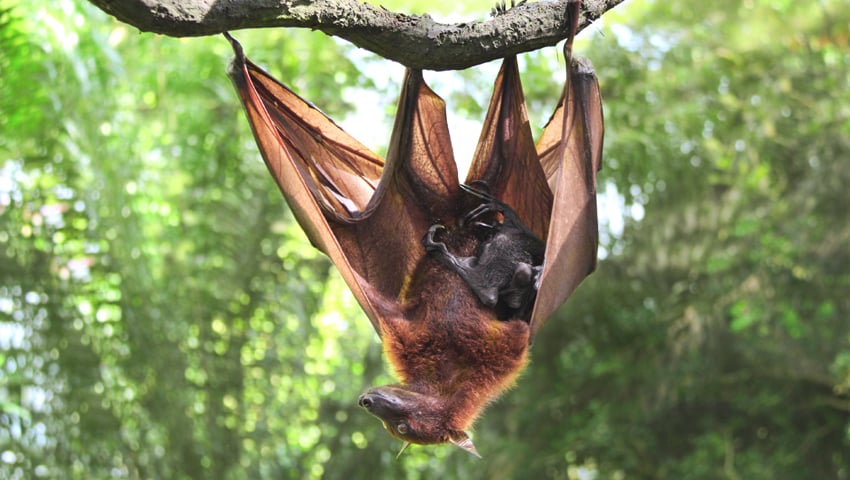RESEARCHERS based in the UK have found that the risk of new pandemics increases in human-dominated eco-systems.
The paper says “Land use change, for example the conversion of natural habitats to agricultural or urban ecosystems, is widely recognized to influence the risk and emergence of zoonotic disease in humans.”
The research, Zoonotic host diversity increases in human-dominated ecosystems, was published in the journal Nature. The authors set out to test whether such changes in risk are underpinned by predictable ecological changes. They considered the degree to which habitat disturbance might cause predictable changes in the local diversity of potential reservoir hosts.
They analysed 6,801 ecological communities and 376 host species worldwide and found that land use has global and systematic effects on local zoonotic host communities.
Known wildlife hosts of human-shared pathogens and parasites comprise a greater proportion of local species richness (18–72% higher) and total abundance (21–144% higher) in sites under substantial human use compared with nearby undisturbed habitats. The magnitude of this effect varies and is strongest for rodent, bat and passerine bird zoonotic host species.
The authors said, “We further show that mammal species that harbour more pathogens overall are more likely to occur in human-managed ecosystems. Our results suggest that global changes in the mode and the intensity of land use are creating expanding hazardous interfaces between people, livestock and wildlife reservoirs of zoonotic disease.”
Countercurrents reported that,”As scientists continue to research the origin of the Covid-19 pandemic, one fact has become clear: deforestation is linked to emerging diseases. When humans destroy forests to create land for human use, whether it’s for farming, mining, logging, infrastructure development, or urban expansion, biodiversity is diminished. And as some species go extinct, the ones that remain and even flourish in degraded forest ecosystems—like bats, rats, and birds—are those that are more likely to be hosts for deadly viruses that can jump to humans.
“Covid-19, SARS, and Ebola – three infectious diseases that spread across national borders since 2002 – share one thing in common: they were transmitted to humans from wild animals living in tropical forests, which are losing more than 100 trees per second due to rampant, unsustainable deforestation.”
Co-author Kate E. Jones said, “We’ve been warning about this for decades. Nobody paid any attention.”
